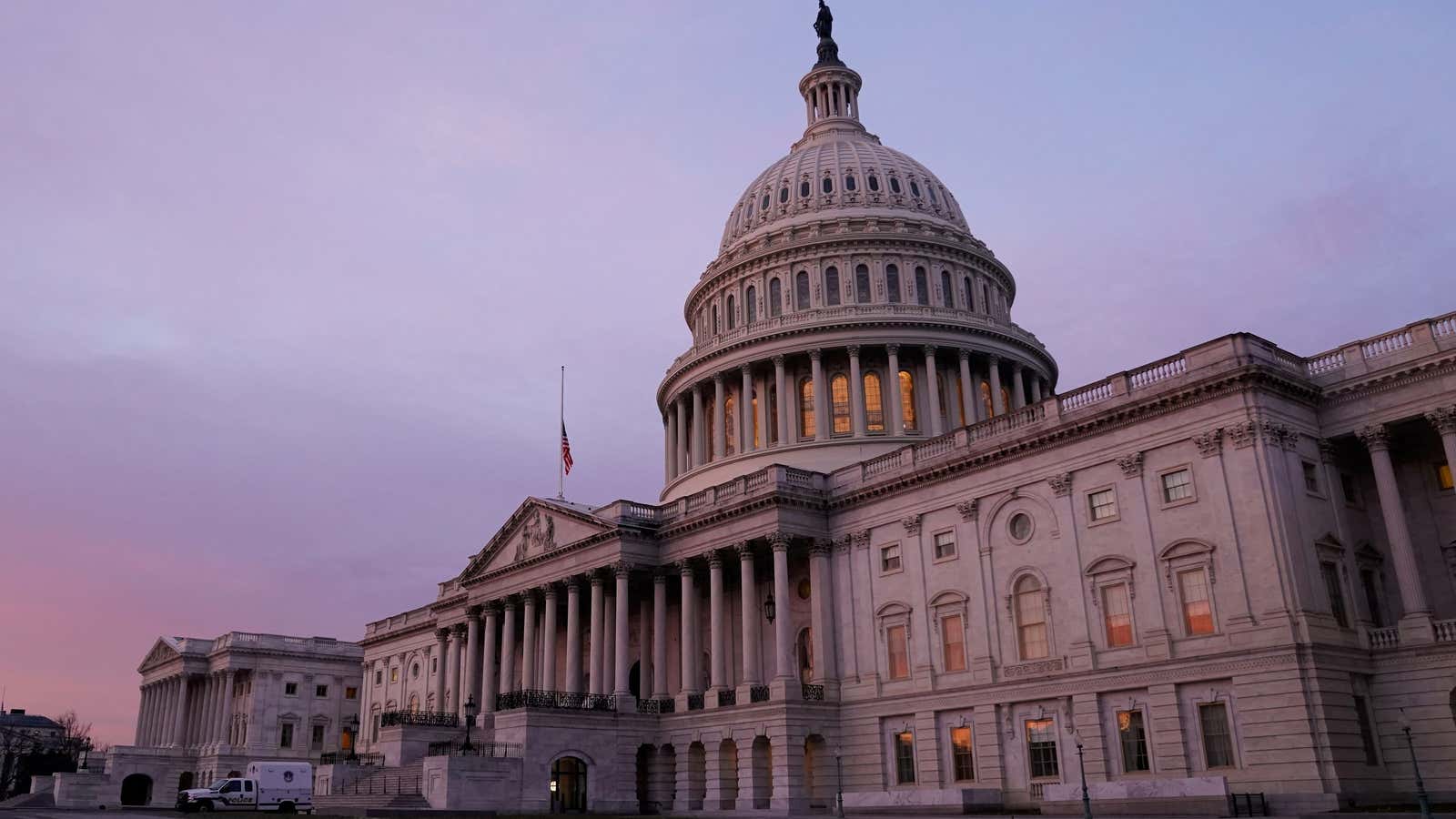A bipartisan group of US lawmakers unveiled a package of five bills this afternoon aimed at reining in big tech companies’ most anti-competitive business practices. The proposals were a long time coming. If passed, they would restore Congress’s longstanding tradition of regularly updating the antitrust laws to address the worst competition-squashing business behavior of the day—and they would give regulators and prosecutors much more ammunition to go after tech giants.
Updating monopoly laws used to be a routine part of Congress’s job. After US lawmakers passed the landmark Sherman Antitrust Act in 1890, they tweaked the law in 1914, 1936, and 1950 to keep up with all the new ways dominant businesses found to exploit their market power over the years. After 1950, however, antitrust legislation went dormant. Lawmakers haven’t overhauled the rules in seven decades, leaving them woefully inadequate to restrain cutting-edge tech companies whose business models no mid-century legislator could have predicted.
In the absence of new laws, American regulators and antitrust prosecutors have had to rely on the lowest common denominator of US anti-monopoly policy: the consumer welfare standard. Narrowly defined, this legal standard holds that business practices are only anti-competitive if they raise prices for consumers. That has forced prosecutors to twist every lawsuit about competition-squashing behavior into a convoluted argument about economic models and projections for consumer prices, which makes it very difficult—and expensive—to win cases against big companies.
The five proposed bills would make things much simpler, by clearly outlawing certain business practices. The Platform Competition and Opportunity Act would ban big tech companies from buying up smaller rivals. The Ending Platform Monopolies Act would bar tech companies from running a dominant marketplace and also selling their own competing goods and services on it. The ACCESS Act would force companies to let consumers take their data from one platform to another. The Merger Filing Fee Modernization Act would raise new barriers for billion-dollar mergers. The American Innovation and Choice Online Act would bar a number of practices that allow dominant companies to shut rivals out of their platforms or dictate their prices.
Each of these bills enjoys support from prominent Democrats and Republicans, although the list of co-sponsors and supporters skews toward Democrats who are co-sponsoring and expressing support for the bill in greater numbers. Even so, the bipartisan announcement illustrates the rampant frustration among both parties’ political bases with the dominance of the world’s biggest tech companies. It could be one of the few issues on which there’s still room for bipartisan legislation in a deeply divided Congress.
The impact of the new laws would not be limited to the US. The biggest tech companies have a globe-spanning influence but are almost all headquartered in the US, meaning that changes in this country would impact competition and consumer choice around the globe. No other nation has as much power to reign in the tech industry: While European regulators have been more aggressive in sticking the companies with fines, they’ve been loath to pursue the most dramatic penalties—including breakups—given that the companies are not based within their jurisdiction.
America’s Congress, in other words, is the only body that can truly check tech’s power.
